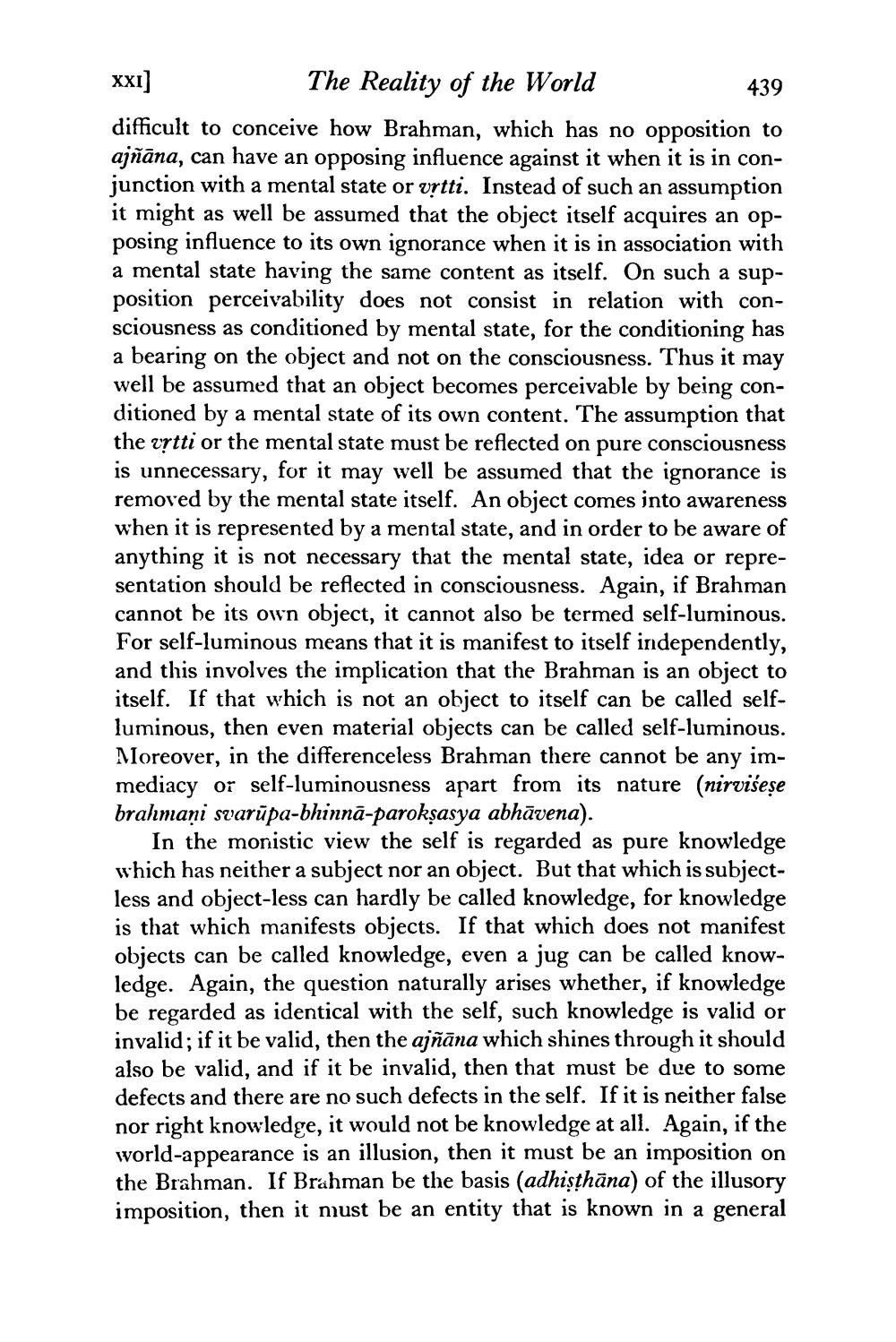________________
xxi] The Reality of the World
439 difficult to conceive how Brahman, which has no opposition to ajñāna, can have an opposing influence against it when it is in conjunction with a mental state or vrtti. Instead of such an assumption it might as well be assumed that the object itself acquires an opposing influence to its own ignorance when it is in association with a mental state having the same content as itself. On such a supposition perceivability does not consist in relation with consciousness as conditioned by mental state, for the conditioning has a bearing on the object and not on the consciousness. Thus it may well be assumed that an object becomes perceivable by being conditioned by a mental state of its own content. The assumption that the vrtti or the mental state must be reflected on pure consciousness is unnecessary, for it may well be assumed that the ignorance is removed by the mental state itself. An object comes into awareness when it is represented by a mental state, and in order to be aware of anything it is not necessary that the mental state, idea or representation should be reflected in consciousness. Again, if Brahman cannot be its own object, it cannot also be termed self-luminous. For self-luminous means that it is manifest to itself independently, and this involves the implication that the Brahman is an object to itself. If that which is not an object to itself can be called selfluminous, then even material objects can be called self-luminous. Moreover, in the differenceless Brahman there cannot be any immediacy or self-luminousness apart from its nature (nirvisese brahmaņi svarūpa-bhinnā-parokșasya abhāvena).
In the monistic view the self is regarded as pure knowledge which has neither a subject nor an object. But that which is subjectless and object-less can hardly be called knowledge, for knowledge is that which manifests objects. If that which does not manifest objects can be called knowledge, even a jug can be called knowledge. Again, the question naturally arises whether, if knowledge be regarded as identical with the self, such knowledge is valid or invalid; if it be valid, then the ajñāna which shines through it should also be valid, and if it be invalid, then that must be due to some defects and there are no such defects in the self. If it is neither false nor right knowledge, it would not be knowledge at all. Again, if the world-appearance is an illusion, then it must be an imposition on the Brahman. If Brahman be the basis (adhisthāna) of the illusory imposition, then it must be an entity that is known in a general




